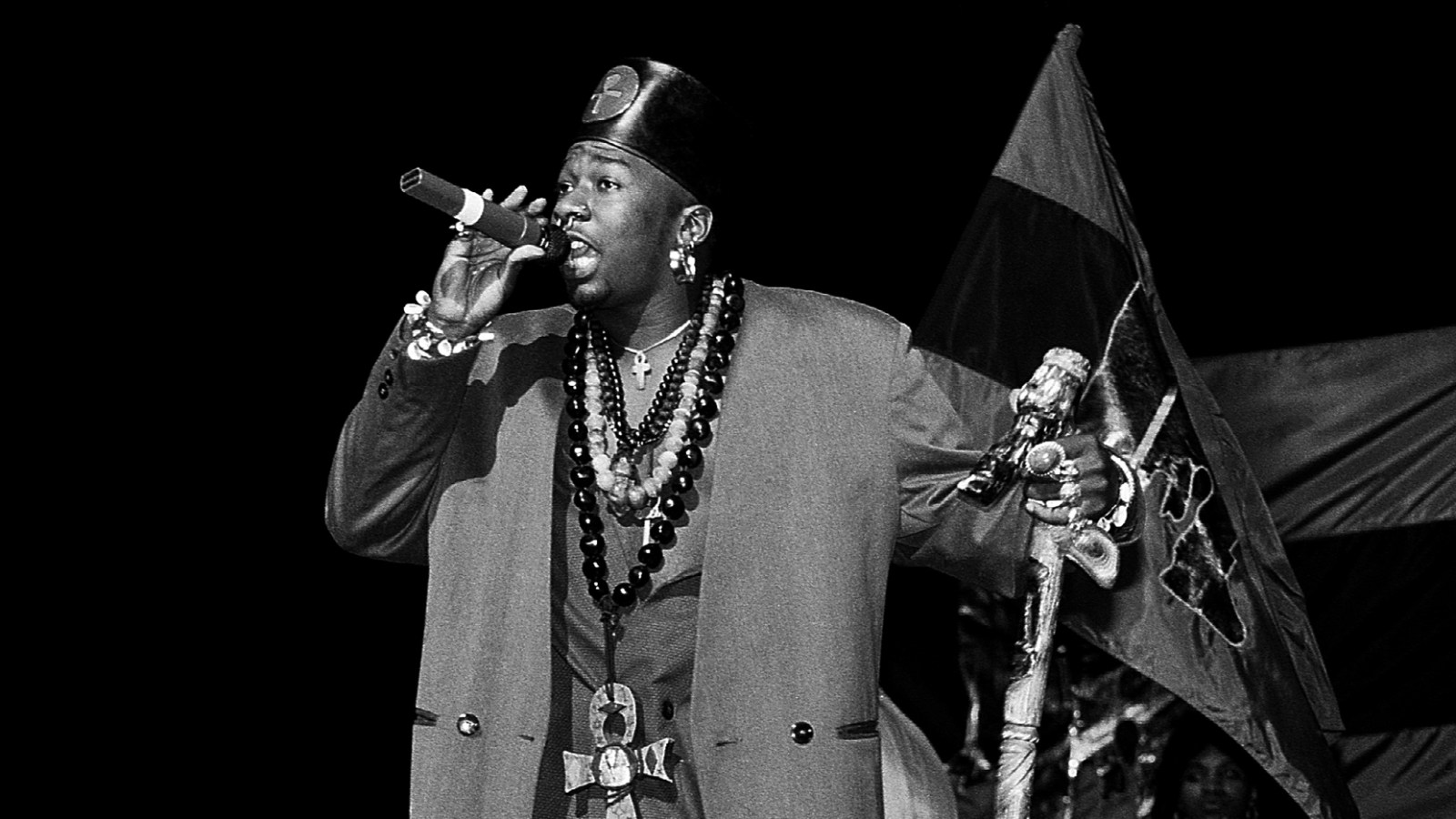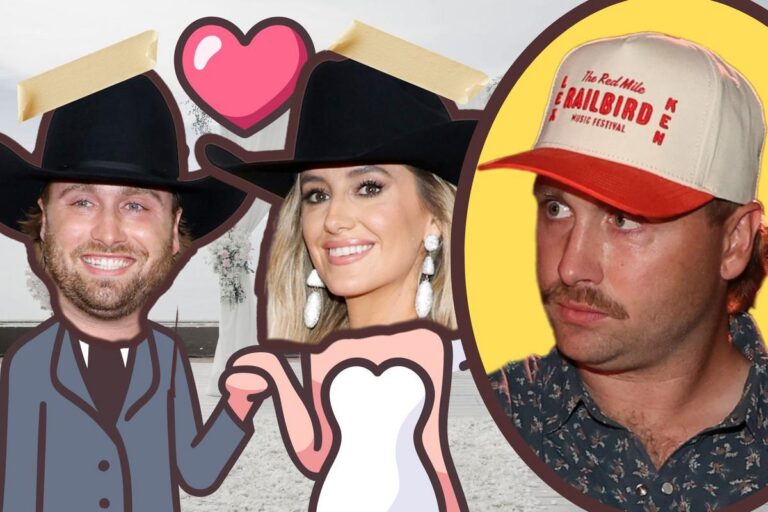Writer and activist Patrice Griffin has settled a child sexual assault civil case with former Quad Recording Studios owner Luis Gonzalez and the studio itself for undisclosed amounts, her attorney Hugo Ortega tells Rolling Stone. Gonzalez and the studio were codefendants in a lawsuit that accused Gonzalez of failing to “ensure that guests, including [Griffin], were safe and free from being sexually assaulted while there.” The lawsuit also accuses Jason “Brother J” Hunter of the Nineties rap group X Clan of sexual assault. In July of 2023, New York Supreme Court judge Laurence L. Love granted Griffin a default judgment against Hunter after he failed to appear in court (Ortega says they’re currently seeking an inquest to determine damages against Hunter). Neither Hunter nor Gonzalez responded to Rolling Stone‘s requests for comment.
The civil suit accused Hunter, late X Clan member Lumumba “Professor X” Carson, and “numerous other members of the Blackwatch movement” of repeatedly sodomizing and gang-raping her from the age of 14 in hotel rooms, public bathrooms, and at Quad Studios. Now 49, Griffin says she was forced to ingest cocaine and alcohol during the assaults, which occurred until she ran away from the group at 17. (She says that the late X Clan member Anthony “Sugar Shaft” Hardin was also part of the assaults.)
In 2017, Hunter denied all allegations in an interview. (The conversation, deleted from YouTube, is archived here.) Griffin tells Rolling Stone that Hunter was served with the lawsuit “three or four times,” and says that on one occasion she was told that Hunter “took the paperwork and threw it in the trash” in front of the server. Though she’s now brought closure to the case against Hunter, Gonzalez, and Quad Studios, she says her pain lingers.
“You would think that I would be so thrilled, but I’m not,” she says. “I was talking to my therapist today. I was like, ‘I still feel anger and frustration.’ Sometimes I sit back and ask myself, did this really happen to me? And then I have to remind myself, ‘Yes it did. And you’re not tripping.”
The Blackwatch Movement is a Black militant group that Griffin says had several chapters in American cities, including New York. Blackwatch included the late activist Robert “Sonny” Carson, who was seen as the “Master Overseer,” while his son Lumumba (Professor X) was “Overseer.” Hunter, 14 years younger than Lumumba, was the “Underseer.” X Clan was part of the Blackwatch Movement; the quartet, consisting of Carson, Hunter, Hardin, and Claude “Paradise” Gray, dropped their debut album, To The East, Blackwards, on 4th & B’way Records and Island Records in 1990. Their Afrocentric aesthetic, esoteric themes, and energetic songs made them early beacons of so-called “conscious rap.”
Griffin has alleged that she first became acquainted with the group when she was 14, while they were crafting their debut. “When I heard their music, I immediately fell in love with it because I loved hip-hop,” she recalls. She had been listening to their music for “a while,” and attended anti-NYPD protests they held on the Brooklyn Bridge. “I think I was just looking for a place to belong,” she says. Blackwatch appeared to be a “family-oriented environment,” and she befriended several young women who became “big sister” figures to her. Through them, she met Lumumba and Hunter and asked them to join the organization. Around the same time, she had been kicked out of her mother’s house for cutting school.
She became the group’s secretary and lived at their office in the Fort Greene section of Brooklyn; the lawsuit alleges that the assaults began “shortly after.” At 15, she ran away from Blackwatch and moved into a homeless shelter, but she has alleged that Carson came to the shelter and brought her back to their office. “I told [Sonny] myself and instead of helping me, he wanted to have sex with me,” she told Metropolis newspaper in 2020. She eventually fled from the group for good at 17.
X Clan disbanded in 1992 (though Hunter reprised the group in 2007). Hardin died of AIDS in 1995, while Lumumba died at 49 of spinal meningitis in 2006. In 2002, Sonny Carson died at 66 after complications from two heart attacks.
“I literally trusted these people,” Griffin says of Blackwatch. “I thought they were going to be family to me, especially since my mom had put me out for cutting school and all the things that normal teenagers do, and they welcomed me with open arms. The last thing that I would ever think is that they would do those horrific things to me.”
She says the alleged assaults have taken a toll on her mental health, resulting in depression, PTSD, recurring nightmares, and multiple suicide attempts. She also battled cocaine addiction after she says she was plied with the drug during the assaults. In 2014, she achieved a bachelor’s degree in psychology and sociology from Touro College. She then joined the U.S. Army, pursuing a career in a VA hospital as a maintenance mechanic. But the residual trauma of her abuse lingered, and the VA let her go. “My psychiatrist was like, you need to not work,” she says. “Focus on healing and getting yourself together.” She’s been in therapy for the past 10 years. “It’s something that never leaves,” she says. “It comes and goes, but there are triggers.”
When Hassan Campbell came forward in 2016 to accuse hip-hop pioneer Afrika Bambaataa of child abuse (he’s denied the accusations), Griffin says she felt empowered to speak up about her assaults. (A New York John Doe later accused Bambaataa of child molestation and sex trafficking in 2021; that plaintiff won a default judgment this May when Bambaataa never appeared in court.)
In 2019, Griffin started Patrice’s Kids, a nonprofit serving kids in underserved communities, especially foster children. The organization offers kids school supplies, toys, and sneakers, and has an annual party. She also worked with Gary Greenberg, a fellow child abuse survivor and founder of the nonprofit Protect NY Kids, on New York’s Child Victims Act, which was enacted in 2019. The law extended the statute of limitations for criminal and civil cases of child sexual abuse, allowing her to pursue the lawsuit against Hunter.
The following year, Griffin, who now lives in Texas, published a book called The Unconscious Community, which her nonprofit’s website says is a “story about being a 14-year-old girl who endures the horrors of child sexual abuse,” but “is able to triumph,” becoming dedicated to making sure the “hidden world of pedophiles is no longer safe.”
“I didn’t want to hold it in anymore,” she says. “I thought about other kids that might’ve been my age at the time, 14, or even younger. They said one in three young girls and one in six young boys in the United States have been sexually abused before the age of 18. So it was a therapy thing for me, a release [that] expose[d] them as well; you can’t go around doing horrific things like that to people and think you’re going to get away with it. It was more of helping parents to pay attention to signs when it comes to their children, and being more aware so that no child has to go through what I went through.”
Griffin says she feels that society is still too disbelieving of survivors, who come forward seeking “support, understanding,” and “love.” “When you’re being honest and actually a survivor, people are quick to say that you’re a liar, that you’re just trying to get money and they attack you,” she says. “That messes with your mental, because you’re like, ‘All I want to do is get justice.’ It makes you not want to say anything because you’re afraid of the backlash.”
Griffin says she can’t speak for Hunter, but wonders if he thought him ignoring the case would make her stop pursuing the case. “I wasn’t going away,” she says. “I wanted to do everything in my power to get the justice that I so desperately needed from age 14 until now.”



